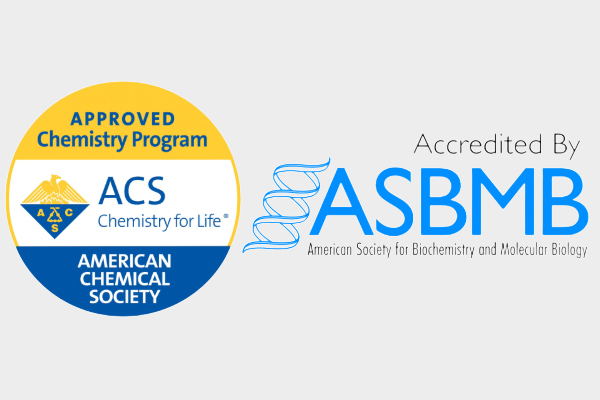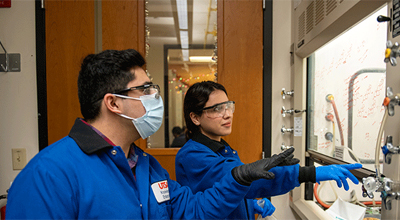The Department of Chemistry at The University of Texas at San Antonio is a comprehensive academic unit that offers B.A. and B.S. degrees in Chemistry, a B.S. degree in Biochemistry, a M.S. degree in Chemistry, and a Ph.D. degree in Chemistry.
Our vision is to be a premier department of chemistry advancing scientific literacy through creative research and advances in education, including collaborations within and beyond UTSA. Our faculty are nationally and internationally known for their contributions to science. Our graduates often pursue careers in one of the following professions: chemist, research scientist, forensic scientist, toxicologist, quality control, chemist, and laboratory tech.
Students have access to strong research programs, state-of-the-art resources, and competitive financial support. Our faculty members conduct research in a variety of areas and are dedicated to the university mission of discovery, teaching and learning, community engagement, and public service.

304
Undergraduate Students
60
Graduate Students
37
Faculty
$6.9M
Research Expenditures
Faculty Positions for Fall 2024
The Department of Chemistry invites applications for a Rita and John Feik Distinguished Chair in Medicinal Chemistry and an Assistant Professor in Computational Chemistry for Fall 2024. Use these links for additional information on how to apply.

Undergraduate B.S. Programs
The UTSA BS in Biochemistry is accredited by the American Society for Biochemistry and Molecular Biology; the UTSA BS in Chemistry is approved by the American Chemical Society.
Latest Chemistry News
View All Chemistry News
November 30, 2023
ACS Publications announces Kirk Schanze appointed as new Deputy Editor for ACS Central SciencePublished by ACS Publications

November 9, 2023
Max and Minnie Tomerlin Voelcker Fund inspires UTSA’s next generation of pharmaceutical researchersPublished by UTSA Today

October 23, 2023
DOE grant enables UTSA professor Xu to study a novel material with environmental benefitsPublished by UTSA Today
Social Media
Stay connected & engaged with UTSA Chemistry!


